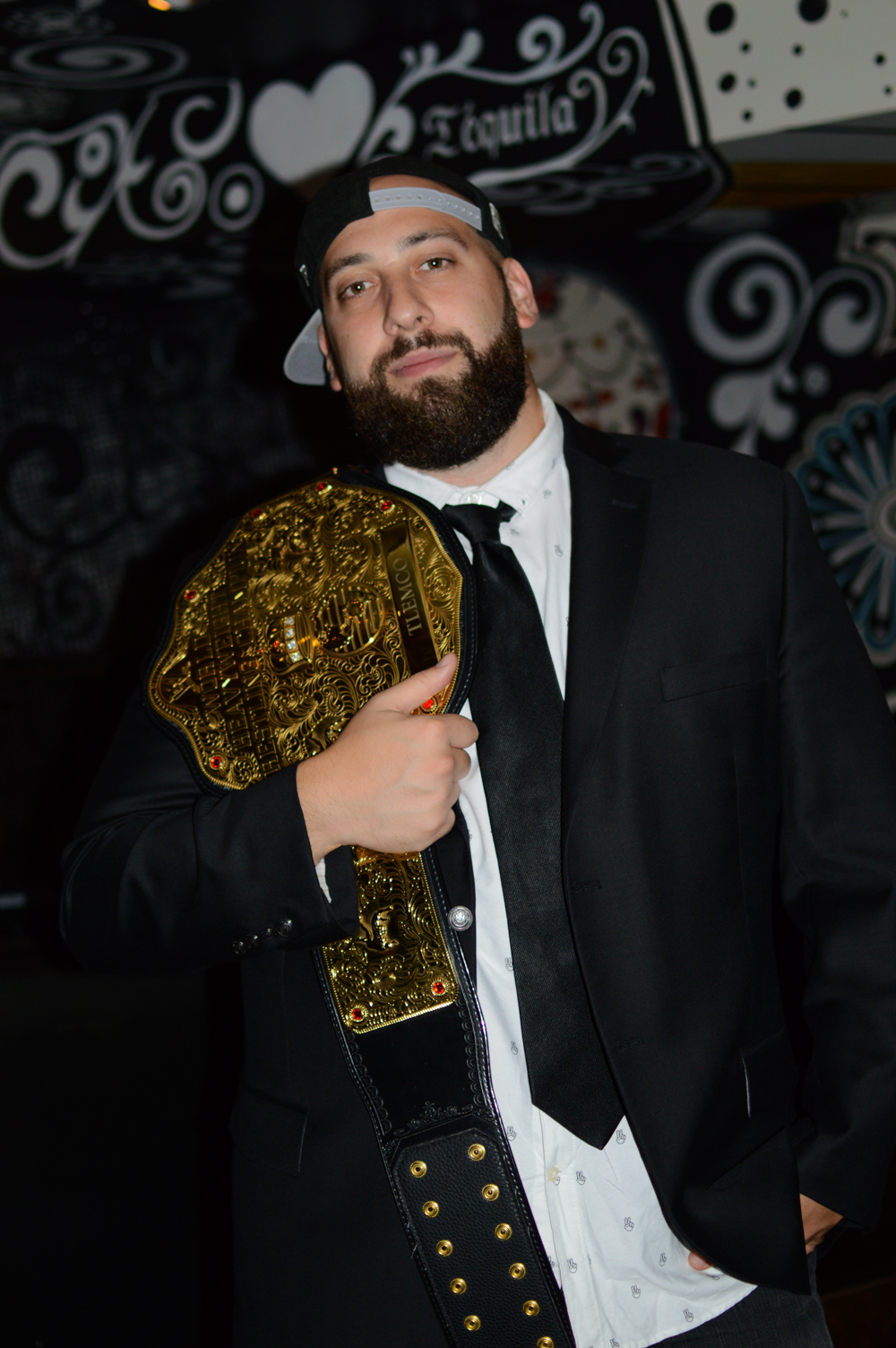Montreal’s lowest-polling mayoral candidate is a spark of possibility for his supporters
“When I first announced it, I was like, ‘Oh, this will be funny.’” These are not the words a typical mayoral candidate uses to describe his campaign. That’s because Tyler Lemco is not a typical mayoral candidate.
The former Epic Meal Time star and Concordia journalism graduate did not win Montreal’s mayoral election. He didn’t even come close. In fact, it’s unclear whether he wanted to win at all. There were cheers of joy from his Tequila Bar election party when Valérie Plante’s victory was announced on TV. This was not a defeat—not entirely. For Lemco and his supporters, victory was always secondary.
The odyssey of Tyler Lemco started in 2015 during the last federal election. Campaign signs adorned with the YouTube star’s face began popping up all over Montreal. This wasn’t a real bid for office, but it drew considerable attention on social media. “If I accomplished all of that with nothing, let’s see what I can do actually trying something,” Lemco said.
Last February, he met former Mayor Denis Coderre for the first time.
“I jokingly told him I was going to run against him and he laughed,” said Lemco. “So, it was that moment when I said, ‘Alright, I’m in.’”
During the race, Lemco received mixed reactions from his running mates. “Plante has been great,” he said. “I’ve spoken to her probably 15 times. We have this weird mutual respect. Every so often, she’ll ask if I’m endorsing her and I’m like, ‘No, we’re still competition.’”
Lemco never managed to woo his other major opponent. “I’ve tried messaging [Coderre]. Even [after] the diss track, I was hoping he would say something. He’s essentially entirely ignored me.”
The diss track in question is a two and a half minute rap track, accompanied by a music video, posted on Lemco’s Youtube page on Oct. 31 as part of his aggressive social media campaign. “Coderre the unfair mayor, you a chump homie / looking like the white version of Professor Klump, homie,” is just one of the attacks Lemco launched against his then-incumbent opponent.
For three and a half months, Lemco ran his campaign on a razor-thin budget. He estimates that he spent about $500 of his own money, most of it on campaign signs and boosted Facebook posts. Lemco’s signs, which he put up around the city himself, encouraged passersby to vandalize them, which Montrealers responded to with enthusiasm.
In addition to his social media campaign, Lemco embarked on what he called a “bar-to-bar” campaign after struggling to connect with voters in broad daylight. “I go talk to people when they’re their most talkative, when they’ve got a few drinks in them,” he said. According to Lemco, the most common issues on people’s minds are the pit bull ban and Montreal’s expensive 375th anniversary celebrations.
Despite his campaign’s lighthearted beginnings, Lemco said he was shocked into seriousness by the support he received. It was then that he realized, “I can’t make this too much of a joke; I have this responsibility to give this a legitimate shot.”
Lemco did have some ideas for improving the city. He wanted to see heated roads rather than snow plows in the winter. Had he won the race, he would have continued vlogging during his tenure to encourage transparency at city hall. He also would have sought to ban rapper Pitbull from the city. “I’m a fair mayor, and I think the ban on pit bulls is absurd so I’d get rid of that, but I also believe there should be some balance in life,” he said, although he admitted he is a fan of the Miami-based rapper.
Regardless of the odds, there is at least one supporter who will never leave Lemco’s side. “Knowing Tyler, anything he wants to do, he goes at it full force. So, running for mayor or running for city council, I’m behind him 100 per cent,” said his mother, Brenda Lemco.
That’s not to say she wasn’t skeptical about his campaign at first. “Are you kidding? Is this really what you want to do? Are you serious?” she told him when she learned of his candidacy.
“I think the goal of this campaign first and foremost is to do something positive, try to start some important conversations,” Lemco said. He hopes his campaign will inspire others. “Look at me. Look at what I’m doing and I’m not qualified whatsoever,” he said. “If I win as a byproduct of that, then cool.” Although Lemco said it’s too far in the future to know for sure, he is not ruling out a second mayoral campaign.
Anyone with doubts about his plans for the future can consult his rap video: “Ima never stop running / Call me Forrest Gump, homie.”
Photo by Mackenzie Lad
